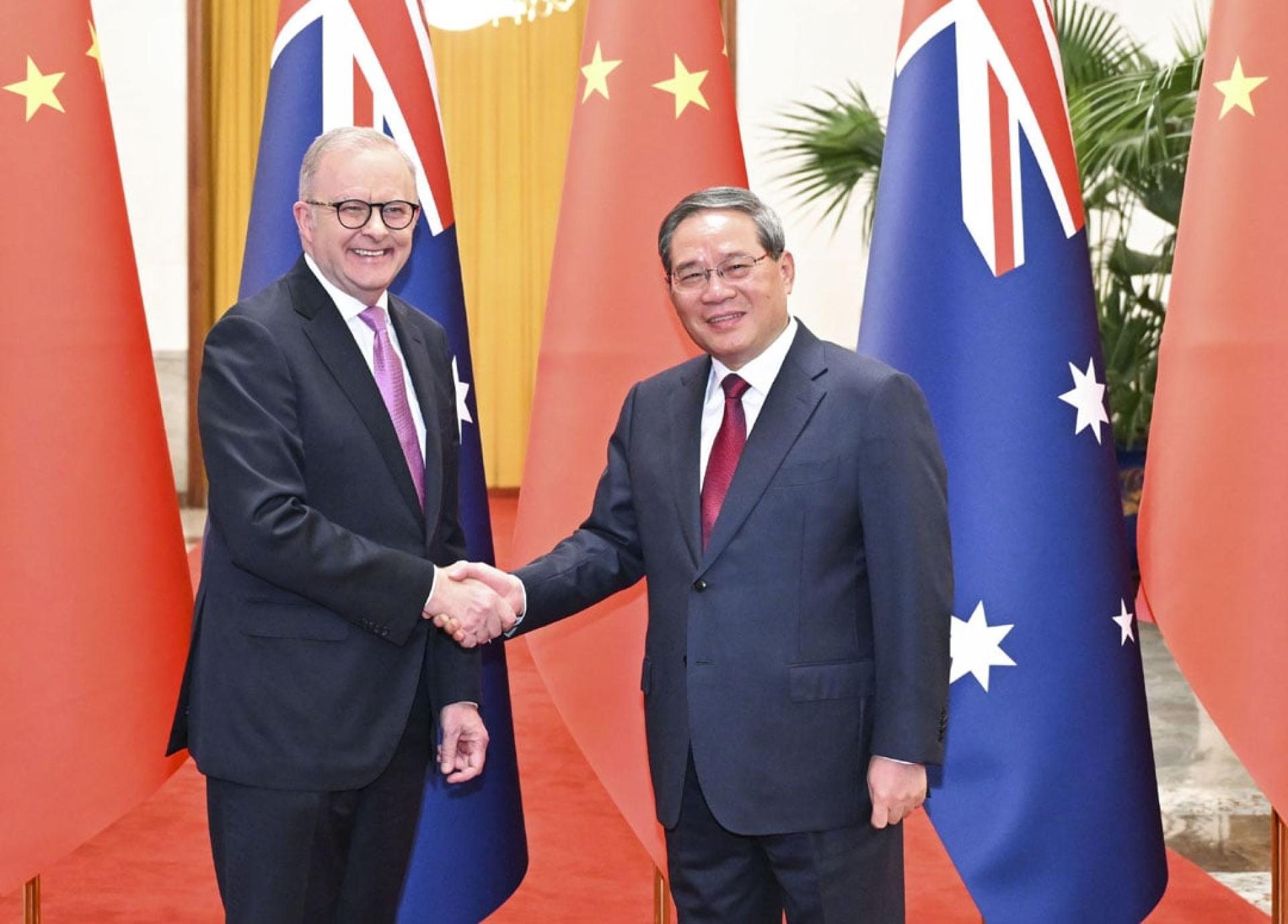On the afternoon of the 15th, Chinese Premier Li Qiang held the 10th annual China-Australia Prime Ministers' meeting with Australian Prime Minister Albanese, who is on an official visit to China, at the Great Hall of the People in Beijing. After their talks, the two witnessed the signing of several cooperation documents covering trade, customs inspection and quarantine, agriculture, tourism, and more.
Li Qiang mentioned that China is willing to continue working with Australia to deepen and expand bilateral cooperation, achieve a higher level of mutual benefit and win-win results, and better benefit the peoples of both countries.
Li Qiang stated that, at present, instability and uncertainty in the world economy are increasing, and all countries face new challenges to their development. Against this backdrop, as important economic and trade partners, China and Australia have even more reason to strengthen communication and cooperation. He pointed out that China and Australia have strong economic complementarities, with broad cooperation prospects in areas such as energy and minerals, agricultural products, green development, and scientific and technological innovation. China is willing to work with Australia to fully utilize mechanisms such as the Strategic Economic Dialogue, the Joint Committee on Agriculture, and the High-level Dialogue on Trade Remedies to strengthen planning and design of cooperation in various fields, identify more common interests and economic growth points, and unlock the enormous potential of bilateral economic and trade cooperation.
Additionally, he expressed hope that Australia would provide a fair, open, and non-discriminatory business environment for Chinese enterprises in Australia. China is also willing to strongly support further exchanges with Australia in culture, education, tourism, and at the local level, and to further facilitate personnel exchanges between the two sides.
Albanese stated that Australia highly values and is committed to building a stable and constructive bilateral relationship. Australia firmly adheres to the one-China policy, does not support "Taiwan independence," and is willing to strengthen high-level exchanges and dialogues with China in various fields, including diplomacy and economy and trade, without letting differences define the bilateral relationship. He stated that Australia is willing to provide a stable and predictable environment for Chinese enterprises to invest and do business in Australia, and welcomes more Chinese students and tourists to Australia.
In addition, on the same evening, Li Qiang and Albanese jointly attended the 8th China-Australia CEO Roundtable Meeting at the Great Hall of the People in Beijing.
● China and Australia Sign Memorandum on FTA, Reviewing Expandable Areas
Meanwhile, on the 16th, China’s Ministry of Commerce announced that, in the presence of Li Qiang and Australian Prime Minister Albanese on the 15th, Chinese Minister of Commerce Wang Wentao and Australian Department of Foreign Affairs and Trade Secretary Jan Adams signed a memorandum of understanding regarding the implementation and review of the China-Australia Free Trade Agreement.
The Ministry stated that since the China-Australia FTA came into effect in 2015, it has strongly promoted fruitful results in the development of bilateral economic and trade relations. This year marks the 10th anniversary of the implementation of the China-Australia FTA. Both sides will take this as an opportunity to maintain close cooperation, continue high-quality implementation of the agreement, jointly conduct reviews of the agreement to identify areas that can be further improved or expanded, and enhance the level of trade and investment liberalization and facilitation, thus providing higher-level institutional guarantees for bilateral economic and trade cooperation.
Additionally, Albanese also met with Zhao Leji, Chairman of the Standing Committee of the National People's Congress of China, expressing willingness to deepen economic and trade cooperation with China, strengthen contacts between legislative bodies, expand people-to-people exchanges, jointly address climate change, properly manage differences, and actively promote Australia-China relations through dialogue and cooperation.
